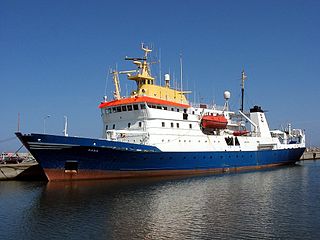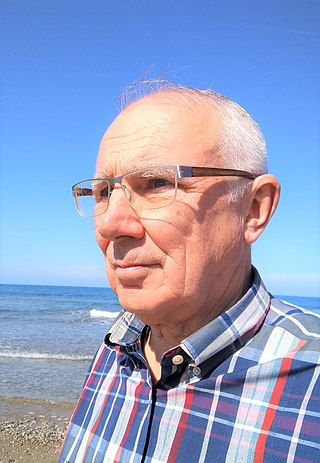Related Research Articles

The goal of fisheries management is to produce sustainable biological, environmental and socioeconomic benefits from renewable aquatic resources. Wild fisheries are classified as renewable when the organisms of interest produce an annual biological surplus that with judicious management can be harvested without reducing future productivity. Fishery management employs activities that protect fishery resources so sustainable exploitation is possible, drawing on fisheries science and possibly including the precautionary principle.

Fisheries science is the academic discipline of managing and understanding fisheries. It is a multidisciplinary science, which draws on the disciplines of limnology, oceanography, freshwater biology, marine biology, meteorology, conservation, ecology, population dynamics, economics, statistics, decision analysis, management, and many others in an attempt to provide an integrated picture of fisheries. In some cases new disciplines have emerged, as in the case of bioeconomics and fisheries law. Because fisheries science is such an all-encompassing field, fisheries scientists often use methods from a broad array of academic disciplines. Over the most recent several decades, there have been declines in fish stocks (populations) in many regions along with increasing concern about the impact of intensive fishing on marine and freshwater biodiversity.
Anne Elizabeth Magurran is a British Professor of ecology at University of St Andrews in Scotland. She is the author of several books on measuring biological diversity, and the importance for quantifying biodiversity for conservation. She has won numerous awards and honors, is regularly consulted for global assessments and analyses of biodiversity and conservation and her research is often highlighted by journalists.
David Henry Cushing FRS (1920-2008) was an English born fisheries biologist, who is credited with the development the match/mismatch hypothesis as an explanation for reduced fish stocks as associated with climatic variability. David Cushing was the first to demonstrate what we now know as "recruitment overfishing" through his work on the collapse of the North Sea herring.

The Marine Biological Association of the United Kingdom (MBA) is a learned society with a scientific laboratory that undertakes research in marine biology. The organisation was founded in 1884 and has been based in Plymouth since the Citadel Hill Laboratory was opened on 30 June 1888.
Tony J Pitcher is a fisheries scientist, well known for his work on the impacts of fishing, the management appraisal of fisheries, and how shoaling behaviour impacts fisheries.
The Genetics Society of America (GSA) is a scholarly membership society of more than 5,500 genetics researchers and educators, established in 1931. The Society was formed from the reorganization of the Joint Genetics Sections of the American Society of Zoologists and the Botanical Society of America.
Raymond (Ray) John Heaphy Beverton CBE FRS was an important founder of fisheries science. He is best known for the book On the Dynamics of Exploited Fish Populations (1957) which he wrote with Sidney Holt. The book is a cornerstone of modern fisheries science and remains much used today. Beverton's life and achievements are described in detail in several obituaries written by prominent figures in fisheries science.

Steven J. Cooke is a Canadian biologist specializing in ecology and conservation physiology of fish. He is best known for his integrative work on fish physiology, behaviour, ecology, and human-dimensions to understand and solve complex environmental problems. He currently is a Canada Research Professor in Environmental Science and Biology at Carleton University and the Editor-in-Chief of the scientific journal Conservation Physiology.
Felicity Anne Huntingford FRSE is an aquatic ecologist known for her work in fish behaviour.
Robert Montgomery McDowall was one of New Zealand's most prominent freshwater ichthyologists.

The FSBI Medal is an international fish biology and/or fisheries science prize awarded annually for exceptional advances by a scientist in the earlier stages of his or her career. Medallists have made a significant contribution to the field of fish biology through their achievements in scientific research. The medal is only awarded if a candidate of sufficient quality is nominated. The medal was established by the Fisheries Society of the British Isles (FSBI) to recognize distinction in the field of fish biology and fisheries science, and to raise the profile of the discipline and of the Society in the wider scientific community. Medals are awarded to individuals who have made an outstanding contribution to fish biology and/or fisheries. The FSBI Medal is traditionally awarded in July at the Fisheries Society of the British Isles Annual International Conference.
Lindsay Margaret Laird was a British biologist who was influential in the development of the aquaculture of salmon and other fishes through her research, teaching and the books that she produced. She defined the standards for Organic Farmed Salmon, and introduced quality assurance labelling for farmed salmon.
Alwyne (Wyn) Wheeler was a British ichthyologist who was a curator at the Natural History Museum in London. He was educated at St Egbert's College, Chingford, and Chingford County High School to Higher School Certificate level, and was unusual in that his subsequent scientific career was achieved despite his never having obtained a university degree.
Narayana Balakrishnan Nair (1927–2010) was a marine biologist, ecologist and the founder president of Kerala Science Congress. He was known for his advocacy of trawling ban during monsoon seasons which was later accepted and imposed by the Government of Kerala. A Jawaharlal Nehru fellow, Nair was an elected fellow of all the major Indian science academies as well as the Zoological Society of London. The Council of Scientific and Industrial Research, the apex agency of the Government of India for scientific research, awarded him the Shanti Swarup Bhatnagar Prize for Science and Technology, one of the highest Indian science awards, in 1971, for his contributions to biological sciences. He received the fourth highest Indian civilian honor of the Padma Shri in 1984.
Peter Anthony Larkin, (1924–1996) was a fisheries scientist who spent most of his career at the University of British Columbia. After his PhD at the Exeter College, Oxford, he moved to Canada as the Chief Fisheries Biologist of British Columbia, in a joint appointment between the provincial government and the University of British Columbia (UBC). At UBC, he later served as the Head of the Department of Zoology (1972–1975), as the Dean of Graduate Studies (1975–1984), and as the Vice President Research (1986–1988). He authored some 160 scientific papers. He was also an admired teacher who won UBC's Master Teacher Award in 1971. Outside UBC, he served as the Director of the Pacific Biological Station at Nanaimo (1963–1966).

The Beverton Medal is a prestigious. international fish biology and/or fisheries science prize awarded annually. It is awarded to a distinguished scientist for a lifelong contribution to all aspects of the study of fish biology and/or fisheries science, with a focus on ground-breaking research. The medal was established as the highest award of the Fisheries Society of the British Isles (FSBI) to recognize distinction in the field of fish biology and fisheries science, to raise the profile of the discipline and of the Society in the wider scientific community. Medals are awarded to individuals who have made an outstanding contribution to fish biology and/or fisheries. The Beverton Medal is traditionally awarded in July at the Fisheries Society of the British Isles annual international conference.

Michael Graham (1898–1972) CMG OBE was a British fisheries scientist, author, and ecologist. He was the director of the Ministry of Agriculture, Fisheries and Food fisheries laboratory in Lowestoft (1945–1958), now known as the Centre for Environment, Fisheries and Aquaculture Science (Cefas). His classic book, The Fish Gate, published in 1943, paints a picture of the near-collapse of the British fishing industry through overfishing that occurred before both the First and the Second World Wars.

Imants (Monty) George Priede is a British-Latvian zoologist, author and academic. He is Professor Emeritus in the University of Aberdeen, Scotland known for his work on fish and life in the deep sea.
References
- ↑ "The Fisheries Society of The British Isles". FSBI. Retrieved 2015-03-08.
- ↑ "Journal of Fish Biology". Wiley. doi:10.1111/(ISSN)1095-8649 . Retrieved 2015-03-08.
- ↑ "The Fisheries Society of The British Isles – Medals". FSBI. Retrieved 2015-03-08.